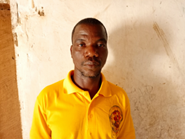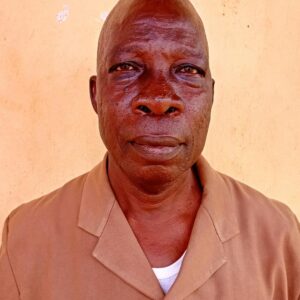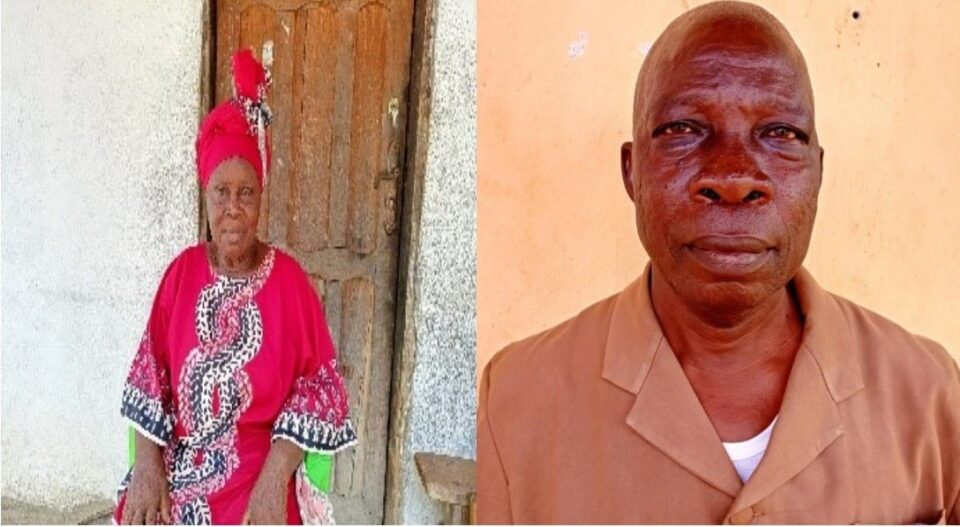PHOTO: (L-R) Joseph Barkerh Acting City Mayor Tappita Ma Esther B. Doe Women Leader Bahn
By Mellish Gbor- in Saclepea, Nimba County/Internews Fellow
Ethnic or tribal politics has long been a divisive force in many countries and communities wreaking havoc on their social fabric, and political stability.
This article explores how ethnic and tribal politics will play a major part in the impending Senatorial election, examining how it may foster division, undermines governance, and impedes development in Liberia second most populated county, Nimba.

Brief backdrop of Nimba Politics after the civil War
Since the 2005 general and presidential elections, Nimba’s elections have been marked by tribal/ethnic politics, mostly among the two major ethnic groups, the Gio and the Mano. Besides the two major ethnic groups in the County, there are other smaller tribes including Krahn, Gbi, and Mandango. The outcome of the election in 2005 in Nimba saw former rebel leader Prince Yormie Johnson of the Gio Ethnic group and militia general Adolphus Saye Taryor Dolo of the Mano tribe been elected as senator of the first category and second category respectively. In the 2011 general and legislative elections, Senator Dolo was seeking re-election but was defeated by a Prince Johnson’s backed candidate, Thomas Grupee also of the Gio Ethnic group. Henceforth, every election in the county has been decided based on ethnic affiliation.
Division in Nimba Communities
The ongoing ethnic or tribal politics is rapidly setting different groups against each other, mostly the two major ethnic groups, the Gio and the Mano, exacerbating tensions and creating deep-seated divisions within Nimba County. The politics in the county since 2011, to the ongoing 2024 by-election process reinforces identities based on ethnicity or tribe, leading to segregation and alienation among the people of the county. This fragmentation may weaken the social cohesion of the county, and foster mistrust and animosity among citizens.
The growing ethnic and tribal political division amongst the two ethnic groups is becoming a concern to those in local community leadership in all parts of the county. Mr. Harrison Wentoe, Town Chief Wea Beeplay, electoral district five, Upper Nimba County cry’s out on the issue.
“The issue of ethnicity in our county during election is not good. Everyone should be voted fairly, voter should not vote someone because of tribe, in most cases when people vote based on tribal sentiment there can be division in the County after election. People will not feel respected; citizens will not be treated equally. This county belongs to everyone, so citizens should vote people who are able to build and unit the County, not because of tribal sentiment that will destroy the County.”

Harrison Wentoe, Town Chief Wea Beeplay
Christen Glayee Youth Chair, Wea Beeplay also says, “We are against ethnicity, because in Nimba whether you are from the Gio or Mano background, we are all the same. If citizens vote based on tribal sentiment our county will not be built, for example, Nimba County has produced the Vice President Jeremiah Koung who is from the Gio background. If we preach the issues of ethnicity what will become of another person who will want to become President from Nimba County if the person is not supported by the Mano settlement? In that case, the county will be divided. So the citizens of Nimba should not vote on tribal basis. Citizens voting based on tribal sentiment can bring bad feeling to the other tribe, especially the minority tribes. So we should vote beyond ethnicity.”

Christen Glayee Youth Chair, Wea Beeplay
Ma Esther B. Doe Women Leader Bahn town thinks: “We are one people, we originated from one background despite us being from different tribes, what everyone should look at is good leader, someone who is able to unify the County, not someone who will only look at his or her interest. There will always be conflict if we decide to vote on tribal line, voting on tribal sentiment will make you elect someone who is not qualified or competent for the position. Tribal sentiment can make you elect someone who is not able to deliver the county, and at the result the county will not be represented in decision making process. If citizens only decide to vote beyond tribal sentiment the rightful person will be elected, for example in the case of Hon. Musa Bility who is from the Mandingo ethnic background. Even though he is from the minority tribe, he was elected as Representative, and he’s doing better in improving the lives of his people not only in district seven.”

Ma Esther B. Doe Women Leader Bahn town
Escalation of Conflict
In the ensuing senatorial by election, four candidates are duly registered by the National Election Commission. Of the four candidates, two are from the Mano ethnic group while two are from the Gio ethnic group. Second placed Nya Tuayen (Mano) in the 2023 general election is facing competition from sitting lawmaker of district five Samuel Kogar (Gio), of the People’s Unification Party, PUP, who is also being deeply supported by Prince Yormie Johnson also of the (Gio) ethnic group and a sitting senator, Armstrong Gobah Selekpoh (Mano) an independent candidate and former senator Thomas Grupee (Gio) also an independent candidate.
This level of Ethnic or tribal politics heightens the risk of violent conflict, as grievances based on identity are exploited for political gain. This kind of competition for political power can escalate into deadly conflicts, tearing communities apart. Even in relatively stable nations, the specter of ethnic or tribal violence looms large, undermining togetherness efforts and perpetuating cycles of instability.

Mr. Joseph Barkerh Acting City Mayor Tappita: “One Nimba is what we preach in any election. Electing someone into public position should be based on development; love and togetherness for the County not on ethnicity, voting on tribal sentiment bring war, because other tribe will feel overlooked. Ethnicity does not support development only confusion; when we see each other as one people one county, and Country there will always be togetherness, peace, coexistence, and unity amongst its citizens. Let us not vote someone because of Ethnicity or relationship with the person when we vote beyond tribal sentiment, we stand to gain more development and progress in our County.”
Mrs. Caroline Yarzue Women Leader Karnwee Town: “We are all one people and must respect everyone despite their tribe, We should not make decisions based on tribal sentiment we should vote someone on what they can do in helping to improve the lives of the community dwellers. Ethnicity does not bring development in anyway it’s bring confusion, and division in society. We as Women Leader welcome everyone in the election and will examine then one at a time to make the best decision in the Interest of our future generations not because he or she is from gio or Mano settlement, electing someone based on their qualifications bring development, Leadership for all, vocational training center, scholarship among others.”

Mrs. Caroline Yarzue Women Leader Karnwee Town
Conclusion
As the people of Nimba goes to the by-election April 23, 2024, to elect a new senator, they are to be aware of the negative impact ethnic or tribal politics may have on the county and people now and in the future, which undermined their cohesion, governance, and development prospects. Addressing this growing challenge requires fostering inclusive politic in the county, which will promote social cohesion. Only through genuine efforts to bridge divides and promote unity can a group of people overcome the destructive legacy of ethnic or tribal politics and realize their full potential.

